

SFC’s Director of Access, Learning and Outcomes presents the Lecturer of the Year Award to Marion Darling from West Lothian College
Over 300 people gathered in Glasgow yesterday evening to celebrate the achievements of colleges, their staff, and learners in the 2025 CDN College Awards.
The annual awards, now in their 26th year, honour extraordinary contributions in all areas of colleges’ work, from skills development to innovation and inclusive learning to community engagement.
The Scottish Funding Council was proud to sponsor the Lecturer of the Year Award. SFC’s Director of Access, Learning and Outcomes, Jacqui Brasted, presented the award to Marion Darling from West Lothian College.
The judges praised Marion for her work in transforming Care education at the College. Marion’s work has included championing Mental Health First Aid training to equip students with lifesaving skills and emotional intelligence
This year’s awards were attended by the Minister for Higher and Further Education, Ben Macpherson and the Master of Ceremonies was television and radio presenter Amy Irons.
The full list of winners is now available on the CDN website.

The recipients of a new stream of Scottish Funding Council (SFC) funding have been announced today.
Efficiency initiatives led by Heriot-Watt University, Queen Margaret University, Glasgow Caledonian University, and the University of Dundee will be supported by SFC’s Shared Services Collaboration Fund.
The four institutions were amongst the ten universities from across Scotland that responded to a call for proposals issued earlier this year.
The successful proposal from Heriot-Watt University is an umbrella project that will see it joining up with eleven other Scottish universities to build institutional capacity to effectively respond to risks to UK research and innovation from hostile state actors and in line with changes to legislation. The partners will work together to develop a digital toolkit to support universities to implement good practice in trusted research and secure innovation.
The project led by Queen Margaret University involves five other institutions. They will work together to develop, test and evaluate a sustainable model for a shared Commercialisation and Knowledge Exchange Service.
Glasgow Caledonian University will partner with the University of Glasgow to create The Innovation3 Exchange, a new shared function to enhance the two universities’ capacity for entrepreneurship, innovation, and commercialisation.
The University of Dundee-led initiative will include NHS Forth Valley, Forth Valley College, the James Hutton Institute and the Tay-Forth Catalyst alongside the Universities of St Andrews and Stirling. Together, they will create a pioneering commercialisation ecosystem across the whole of the Tay-Forth region.
Helen Cross, Director of Research and Innovation at the Scottish Funding Council, said:
“Our Shared Services Collaboration Fund is a new way of supporting Scottish universities to work together for efficiency and sustainability.
“The Fund has been specially created to address the challenges of the current difficult financial climate, and the response from universities has clearly demonstrated the sector’s capacity for collaboration and innovation.
“The four projects receiving funding today all have the potential to make a real difference, and I look forward to following their progress towards success.”
Full details of today’s announcement can be found on the SFC website.
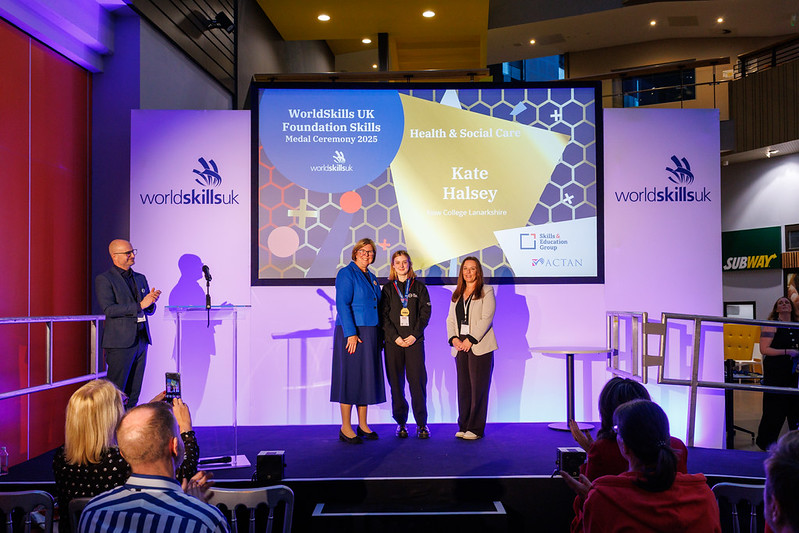
Kate Halsey from New College Lanarkshire won a gold medal at the 2025 WorldSkills Finals in South Wales
Scotland was once again well represented in the WorldSkills UK National Finals which took place last week in venues across South Wales. No fewer than 31 Scottish apprentices competed in 15 different disciplines, including digital construction where Scotland has historically done exceptionally well.
Representation in cyber security, renewable energy and 3D Digital Game Art reflected the changing face of skills provision alongside more traditional skills in areas like health and social care, electrical installation and heavy vehicle technology.
When the results came in, finalists representing Scotland were successful across the full spectrum of medals, winning four golds, three silver and three bronze. It was another exceptional year for New College Lanarkshire which came joint second in the institutional medal table.
In the Foundation Skill competitions designed for students who have a statement of Special Educational Needs and/or disabilities, Kate Halsey from New College Lanarkshire won a gold medal in the Health and Social Care category.
In the mainstream competitions Peter Heggie from New College Lanarkshire won gold in Digital Construction. In the same category Adam Lyon from Glasgow Caledonian University won silver and Andrew Dearie from New College Lanarkshire won bronze. Ellis Stevenson from the Scottish Electrical Charitable Training Trust (SECTT) was the gold medallist in Electrical Installation and Adam Souter, also from SECTT won silver. Also taking home a silver medal was Michael Till from North East Scotland College. Michael’s medal was for Network Infrastructure Technician.
The gold medal in the Mechanical Engineering: CAD category went to Callum Patience from New College Lanarkshire. Scotland’s other bronze medallists were Glasgow Kelvin College’s Craig Gow in the Refrigeration, Air Conditioning and Heat Pumps category, and Abby Ward from New College Lanarkshire in Health and Social Care.
Full details of the 2025 WorldSkills UK National Finals can be found on the WorldSkills UK website.

The André Reibig Medal for 2025 has been awarded by Winning Students 100 to the remarkable Scottish student swimmer, Archie Goodburn.
The medal is presented in memory of SFC’s André Reibig who played a vital role in establishing and developing the highly successful Winning Students programme (now known as Winning Students 100).
The award celebrates a student-athlete who demonstrates exceptional resilience, sporting excellence, and academic commitment. University of Edinburgh swimmer, Archie Goodburn, has embodied all these values, excelling in his sport as well as academically.
As well as securing his place to represent Great Britain at the 2025 World University Games, Archie was selected as a UK finalist for the Young Engineers Award for Innovation and Sustainability, and he played a leadership role in a successful Chemical Engineering Design Project.
Archie’s accomplishments are made even more remarkable by the fact that he competed for Great Britain at the World Short Course Championships in December 2024 while undergoing treatment for a rare form of brain cancer. His perseverance and positive attitude have made him an inspirational figure within his university community.
Archie Goodburn said:
“Receiving the André Reibig Medal means a huge amount to me. André stood for giving athletes the chance to chase their ambitions in sport and education equally, and that’s something I’ve tried to live by.
“I’m hugely grateful for the invaluable support from Winning Students 100, and this recognition motivates me even more as I build towards the Commonwealth Games next summer.”
Jacqui Brasted, Director of Access, Learning and Outcomes at the Scottish Funding Council, said:
“André was the driving force behind the Scottish Funding Council’s support for Winning Students when the programme began in 2008. He was passionate about sport as a positive force for people and communities, and the values behind the André Reibig Medal were really important to him.
“He would have been delighted in the choice of Archie as an athlete and as a young person who embodies those values. Archie’s achievements in swimming and in his studies have been remarkable, and we wish him the very best in achieving his Commonwealth Games ambitions.”
Winning Students 100 Advisory Board Member, Ciaran O’Brien, said:
“The André Reibig Memorial Medal was created to recognise student athletes who not only achieve greatness but also inspire those around them through their character and resilience. Archie Goodburn perfectly embodies these qualities.
“His ability to compete at the highest level while facing immense personal challenges and maintaining his academic excellence is truly extraordinary. He is an inspiration to us all and a deserving recipient of the honour.”
Archie is the second recipient of the medal – the inaugural honour was awarded to Paralympic gold medallist Faye Rogers in 2024.
More details about the 2025 André Reibig Medal are available on the Winning Students website.
Photo courtesy of Winning Students 100.

Photo: University of Glasgow
The Scottish Funding Council (SFC) has launched a consultation on two of its core research and innovation funding grants.
SFC’s Research Postgraduate Grant supports universities to invest in a positive, inclusive and collaborative environment for research training and development. It also helps Scottish universities secure a pipeline of skilled postgraduate researchers, and support their individual development in ways that also benefit academia, industry and society.
The SFC/ DSIT Higher Education Research Capital grant contributes to universities’ capital investment in research infrastructure. It is used across the sector in various ways including contributing towards new buildings; refurbishment of facilities; and investment in cutting edge scientific equipment.
The consultation is part of the Scottish Funding Council’s regular review of policies. Respondents are being asked to consider a set of questions developed with a short life expert working group with membership drawn from SFC’s Research and Knowledge Exchange Committee and sector experts. The review explores potential changes to the allocation models of both grants to ensure they are fit for purpose. Purpose and principles of the grants and quantum of funding are out of scope for review.
Speaking about the consultation, Helen Cross, SFC’s Director of Research and Innovation, said;
“We welcome and value comments from stakeholders and anyone with an interest in the issues raised in the consultation documents published today. We particularly encourage responses from individual universities.”
“We’re acutely aware of the financial challenges currently being experienced within higher education. Only those changes with a clear rationale for improvement and support from universities will be taken forward. As part of the consultation we are also asking respondents to comment on potential mitigation of any changes.”
The consultation documents are now available on the SFC website. The closing date for submissions is noon 13 January 2026.
SFC will be holding two online drop-in sessions to discuss the consultation as well as sessions with sector bodies. Further details are available here SFC HERC/RPG Consultation drop in sessions.

Photo: EAUC / Jas Sansi
The 2025 Green Gown Awards ceremony for the UK and Northern Ireland took place yesterday evening at the Library of Birmingham.
The Awards, established 21 years ago, celebrate the very best of tertiary education’s work to tackle the climate emergency. Yesterday’s event was attended by over 350 people eager to support the finalists and celebrate the winning entries from among the 112 shortlisted applicants.
There were four Scottish winners announced at this year’s ceremony and one highly commended finalist.
Glasgow Kelvin College won the category award for Diversity, Equity and Inclusion in Sustainability. Its Cycling for All project includes a confidence course for students who require learning support due to disability. The College’s ultimate goal is for a ‘just transition’ where all students, regardless of background or ability, have the same access to sustainable opportunities.
For its Sustainable Marcomms project, the University of Edinburgh, winner of the Tomorrow’s Employees award, provided over 300 staff with a basic introduction to sustainability in marketing and communications. A further 18 employees received advanced training to become advocates for long-term change.
The University of St Andrews carried away the Nature Positive trophy for its ambitious project to improve ecological integrity along 16 kilometres of the Fife coastline. Over 15 months, more than 400 students, staff and community volunteers took part in conservation opportunities and training sessions.
Fife College won the Next Generation Learning and Skills category for its partnership role in a ground-breaking Community Retrofit and Heating Innovation project. The initiative offered a two-day “Domestic Retrofit in Practice” course to residents and workers across Fife.
Queen Margaret University was highly commended in the Benefitting Society category for its on-campus Outdoor Learning Hub. The Hub includes a discovery trail, howff and small forest area designed to enrich students’ experience and contribute to sustainability, health and wellbeing.
Martin Farley, UKRI Associate Director of Environmental Sustainability Programme, said:
“The 112 finalists this year demonstrate the real impact that educational institutions can have in driving environmental innovation and creating positive change. These awards highlight the creativity and commitment of those who are leading by example.”
Full information about all the finalists and winners at the 2025 Green Gown Awards is available on the Green Gown website.

Photo: Jeff Holmes
The Winning Students 100, Scotland’s national sport scholarship programme, has announced its 2025-26 cohort, marking a record-breaking year for applications and reaffirming its status as a world-leading dual-career programme.
This year’s intake will see 106 student athletes supported as they pursue excellence in both sport and academia. Spanning 31 sports and 18 further and higher education institutions, this year’s in-take of athletes represent the brightest of young sporting talent based in Scotland.
The scholarship is funded by the Scottish Funding Council, sportscotland, and Scotland’s higher education and further education sector and managed by Scotland’s University for Sporting Excellence, the University of Stirling.
Winning Students was established with Scottish Funding Council funding in 2008 and saw over 1,700 scholarships awarded during its first phase. Well known athletes who have benefited from the scheme include Olympic medallists Laura Muir, Duncan Scott, Vicky Wright and Seonaid McIntosh.
Several of this year’s athletes have represented Team Scotland and Team GB at the highest level, with many setting their sights on the world stage, with aspirations to compete at the likes of the Winter Paralympic and Olympic Games and the Glasgow 2026 Commonwealth Games.
Among them are athletics star Megan Keith, who has been named as part of Team Scotland for Glasgow 2026, artistic gymnastics talent Cameron Lynn, Edinburgh-based swimmer Archie Goodburn, ice hockey player Ruby Newlands and Dumfries and Galloway College curler Logan Carson and Paralympic swimmer Toni Shaw.
Designed to empower Scotland’s most promising sporting talent to excel both academically and athletically, the prestigious Winning Students 100 programme provides athletes with grants of up to £3,000.
The programme works with colleges and universities to offer additional support such as academic flexibility, ensuring student athletes can balance the demands of high-performance training, international competition and rigorous academic schedules.
Winning Students 100 also has a dedicated hardship fund, which provides additional support to student athletes from areas of higher deprivation, making athletic opportunities more accessible to more people.
Cathy Gallagher, Chair, Winning Students 100 Advisory Board said: “Winning Students 100 is a bold and forward-thinking investment in the future of Scottish sport and education. The programme positions Scotland as a true pioneer, delivering a comprehensive support system that empowers athletes to achieve their full potential.
“The programme is about cultivating well-rounded leaders who are prepared for success in all aspects of their life. This year’s record-breaking applications highlight the programme’s reputation as a world leader in dual-career support, and we are proud to champion these exceptional individuals.
“This dual focus on academic and sporting excellence has made Winning Students 100 a powerful platform for success. By working closely with sportscotland, the Scottish Funding Council, partner institutions, and national governing bodies, we ensure that the programme continues to deliver value to students, parents, institutions, and funders alike. Together, we are shaping the future of Scottish sport and education.”
Artistic gymnast Cameron Lynn, who studies Sport Business Management at the University of Stirling, said: “Winning Students 100 is a massive help in terms of my studies, my training and performance. This next year is very important leading up to the Commonwealth Games, as it is a home Games, and I’m really looking forward to competing for my country if I’m selected. Being a Winning Students 100 scholar helps me massively in my preparations for the Games and allows me to perform and study to the best of my abilities.”
For more information about Winning Students 100 and the 2025-26 cohort, visit www.winningstudents-scotland.ac.uk

SFC’s Chief Operating Officer, Martin Boyle (third from right), on a visit to Fife College during the construction of the new campus
Scotland’s first net-zero-ready tertiary education building opened its doors to students for the very first time today.
The new Dunfermline City building at Fife College is a modern, flexible and low carbon facility. It forms part of the £200 million Dunfermline Learning Campus, a 60 acre site that also includes Woodmill and St Columba’s high schools.
Ahead of its opening, College Principal, Jim Metcalfe, described the new campus as “an incredible investment by the Scottish Government and the Scottish Funding Council.”
Every element of the new campus has been carefully designed to support innovation and sustainability and to create an inspiring environment for learners both now and in the future.
Martin Boyle, Chief Operating Officer at the Scottish Funding Council, said:
“As Scotland’s tertiary education funding body, we’re committed to making it as easy as possible to navigate the pathways between school, college and university.
“The Dunfermline Learning Campus will be unique in its ability to support people as they develop their potential from secondary school onwards, and go on to contribute to society and the economy.
“The campus will also be at the forefront of exciting changes around where and how people learn, and will become a fantastic asset to the Fife region.”
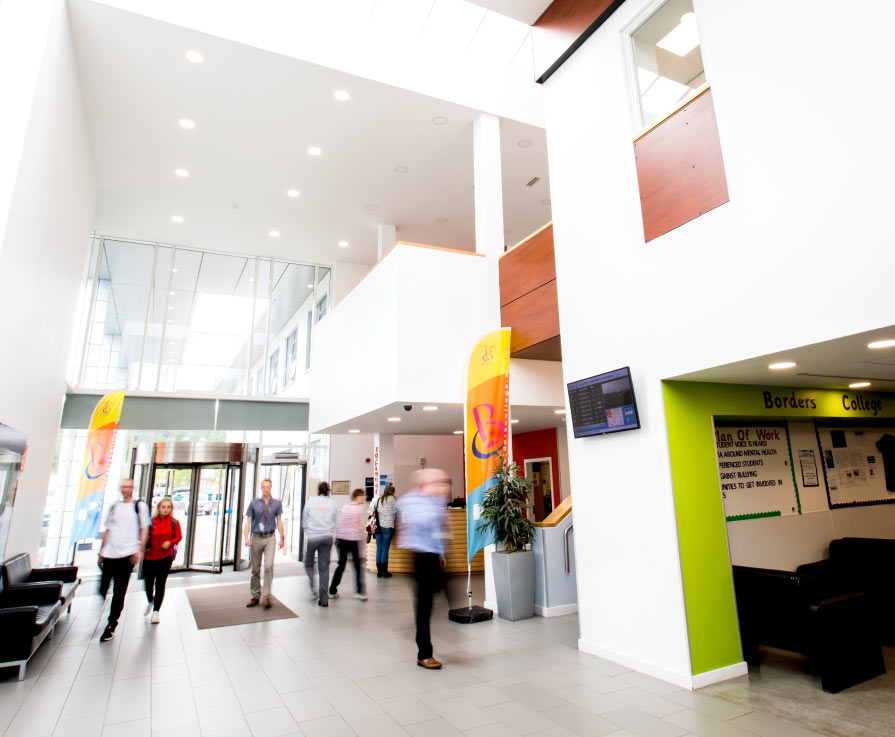
The first ever national plan for strategic investment in Scotland’s college campuses moved a step closer yesterday with the official launch of the next phase of the College Infrastructure Investment Plan.
Designed for the future, the College Infrastructure Investment Plan will review trends in digital learning and net zero as well as the use of built assets.
The launch was marked by a workshop at the Stirling headquarters of Colleges Scotland. Delegates from colleges from across the country gathered to learn more about the next phase of activities which are due for completion in autumn 2026.
During the successful first stage of work, a vital milestone was achieved through the building of a pioneering new database of the complete Scottish college estate.
Martin Boyle, Chief Operating Officer of the Scottish Funding Council, said:
“Our ambition is for college campuses that are high quality, smart and sustainable places to learn, and that support the best outcomes for people, society and Scotland’s future economy.
“The launch of the next phase of the College Infrastructure Investment Plan represents a major milestone in our progress towards that ambition.
“It also marks the continuation of the close partnerships we have built with college estates teams, and I would like to thank everyone who worked so hard to support us during the first stage of the programme.”
The next steps will see the Scottish Funding Council working with colleges and organisations such as the Scottish Futures Trust, the Environmental Association of Colleges and Jisc, the tertiary education technology and data experts, to further advance the investment plan.

Photos: Forth Valley College, UHI Inverness, UHI Perth and West Lothian College
The results of the Scottish Funding Council’s annual survey of college student satisfaction and engagement are unveiled in a report published today.
The survey looks at the class of 2024-25 and includes full-time and part time students studying on both further and higher education courses. Across Scotland, over 43,700 students are represented in the findings.
Today’s figures show that overall satisfaction rates remain high, with nine out of ten full time students saying they were satisfied with their college experience.
That broad figure is the same as last year. However, the finer detail shows an increase in overall satisfaction across all levels and modes of study. Compared to last year’s results, this grew for both part-time students (+ 0.8 percentage points for further education and +3.1 percentage points for higher education) and full time students (+ 0.8 percentage points for further education and +4.8 percentage points for higher education.)
In line with last year’s findings, the results also showed strong recognition for efforts by college staff to encourage students to take responsibility for their own learning. Students also agreed strongly with the statement that their time at college had helped them develop knowledge and skills for the workplace.
Commenting on the results, the Scottish Funding Council’s Chief Operating Officer, Martin Boyle, said:
“It’s really important that our annual survey of student satisfaction and engagement continues to reflect the student voice and inform our work as Scotland’s tertiary education authority.
“In his recent report on Scotland’s colleges, the Auditor General referred to the high rate of student satisfaction in colleges. This latest report shows overall satisfaction has increased even more – a remarkable achievement for colleges at a time of pressure on public finances.
“It’s also great to see students recognising the value of their college studies in preparing them for eventual employment.”
The College Student Satisfaction and Engagement Survey 2024-25 is now available on our website.

Scottish Knowledge Exchange Awards 2025
Photograph by Martin Shields
Tel 07572 457000
www.martinshields.com
© Martin Shields
Scotland’s prestigious awards showcasing business–academic collaboration are now open for applications – and there are two inspiring new categories.
The Scottish Knowledge Exchange Awards, organised by SFC-funded Interface, are now in their 11th year. After celebrating their tenth anniversary at the Edinburgh Futures Institute, the 2026 awards will take place at the University of Stirling’s iconic MacRobert Arts Centre.
The new categories unveiled by the organisers for next year’s awards are Trailblazing AI Collaborations and Research and Innovation in Digital Health and Social Care. The new categories have been developed in partnership with two of Scotland’s national innovation centres; The Data Lab and The Digital Health & Care Innovation Centre respectively.
The awards have an enviable track record of attracting high quality entries from across Scotland, and 32 individuals, teams and projects were shortlisted for last year’s event.
Find out all about next year’s event, including the full list of categories and how to apply on the Interface website.

Photo: University of Edinburgh
The Scottish funding Council (SFC) has confirmed continued funding for Converge, the national organisation supporting university entrepreneurs.
The announcement came as Converge celebrated its 2025 award winners who shared a total prize pot in excess of £400,000.
Alongside the SFC funding announcement, Converge also revealed a new strategic partnership with Scottish Enterprise to create smoother pathways for university entrepreneurs to access business support.
Francesca Osowska, Chief Executive of the Scottish Funding Council, said:
“We’re proud to have been able to support Converge’s impact on Scottish innovation and entrepreneurship for the past 14 years.
“Converge continues to be an integral part of our knowledge exchange and innovation infrastructure and plays an increasingly important role as a catalyst for the thriving and sustainable businesses we need for the future economy.”
The full story and details of this year’s Converge 2025 winners and runners-up can be found on the Converge website.

Photos: Glasgow Caledonian University, University of Edinburgh, Royal Conservatoire of Scotland and University of Glasgow
The Scottish Funding Council (SFC) has today (26 September 2025) published two reports that provide an aggregate picture of the financial health of Scotland’s colleges and universities.
Based on their annual accounts for academic years 2022-23 and 2023-24 and latest forecasts up to 2027-28 for colleges and 2026-27 for universities, the reports provide detailed information at sector level on the operating position, cash balances, sources of income, expenditure, liquidity, cash flow, borrowing and capital expenditure.
Both colleges and universities continue to operate in an extremely tight fiscal environment, with downward trends in cash balances showing both sectors under pressure.
While neither sector is homogenous, and the forecasts represent a snapshot in time, both colleges and universities face similar risks to their financial health, including:
- Increasing staff costs.
- Further flat cash settlements or unanticipated public spending cuts.
- An uncertain macro-economic outlook, including rising inflation and persistently high interest rates.
- Continuing high energy costs.
- Infrastructure pressures, exacerbated by the impact of RAAC, impacting on the delivery of high-quality learning, teaching and research.
- The requirement to invest in the achievement of public sector net zero targets.
- The impact of UK government policies on maintaining international fee income.
The reports also outline the mitigating actions that colleges and universities are taking to adapt to challenges and uncertainties, including staff restructuring, vacancy management, freezing of non-essential spend, reviewing course portfolios, curriculum rationalisation and consolidation, moves to online and blended learning, delaying capital spend and reviewing estates strategies.
Commenting on the reports, SFC Chair, Professor Cara Aitchison, said:
“While these reports represent a snapshot in time, the trends we’re seeing indicate the serious implications of the tight fiscal environment in which colleges and universities are operating and the need for action to address the challenges they face.
“We are encouraged by the proactive steps being taken by institutions as they adapt and build in resilience for this changing environment, recognising that this may include difficult decisions to secure long term financial sustainability which is a requirement of our Financial Memorandum.
“We continue to engage closely with Scottish Ministers on the case for investment in colleges and universities which are the drivers for economic growth, addressing child poverty, supporting the transition to net zero and delivering excellent public services.
“We are also increasing levels of engagement and monitoring activity for those institutions facing the highest risks to their financial health and are working with them to understand and assess plans to bring them back to a sustainable position.”
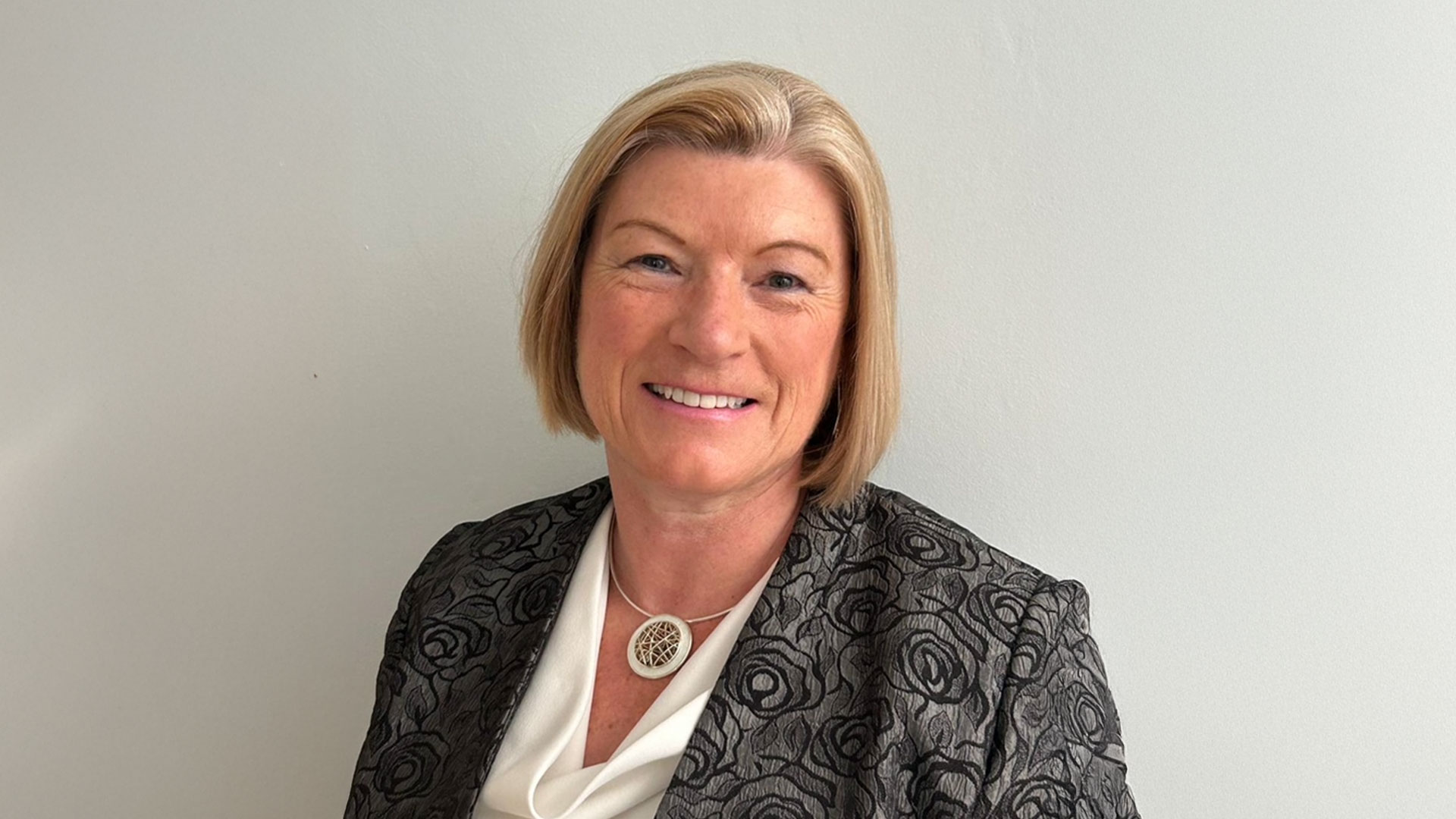
The Scottish Funding Council (SFC) is welcoming five new members to its Board. The appointees will replace Board members whose terms of office have recently come to an end.
The five new members are:
- Professor Elizabeth Gammie
- Steven Grier
- Professor Sue Rigby
- Joanna Campbell
- Danny Gallacher
Professor Elizabeth Gammie is an Emeritus Professor at Robert Gordon University and a Chartered Accountant with the Institute of Chartered Accountants of Scotland (ICAS). A strategic and forward thinker, with extensive experience in change management, she combines educational experience with financial and business acumen.
Steven Grier is a former Director at Microsoft where he has held several leadership positions over last 24 years, including Country Manager of Microsoft in Scotland. Mr Grier has 36 years of experience in technology leadership across a broad spectrum of business and industry in Scotland and wider UK. A life-long supporter of work-based learning and skills, Grier also chaired the Scottish Apprenticeship Advisory Board Equalities Group and is a SAAB Main Board member.
Professor Sue Rigby is Vice Chancellor and Principal of Edinburgh Napier University, taking this role in January 2025 after seven years leading Bath Spa University. In both roles, Professor Rigby has worked to strengthen links between FE and HE, for example by setting up a University Centre in partnership with New City College. She was a member of the Board of Quality Assurance Agency for five years until 2024 and is a member of the advisory board of the Arts and Humanities Research Council. She is also a Fellow of the Royal Society of Edinburgh.
Joanna Campbell is Principal and Chief Executive of Glasgow Kelvin College, bringing extensive leadership experience from across the college sector. She began her career as a lecturer and has since held a broad range of executive and non-executive roles in both education and industry. With a strong record of delivering transformational change, widening access, and driving innovation, she is committed to the role of colleges as engines of growth and social mobility through skills development.
Danny Gallacher has over eight years’ experience of strategic leadership and governance in Higher Education in his current role as a Governor on the Court of Glasgow Caledonian University. His most recent role was as Chief Executive of SEEMiS Group LLP, providing core national education services to all Local Authority schools in Scotland. He was previously a Chief Officer at City of Edinburgh Council and also held senior leadership roles during a lengthy career in the communications sector with Virgin Media, ntl and BT.
Commenting on the new appointments, chair of the SFC Board, Professor Cara Aitchison, said:
“I’m delighted to welcome new members to our Board; this group of people brings exceptional senior leadership experience across colleges, universities, business, industry and apprenticeship providers.
“In the coming period we will be working hard to seize the opportunities that present themselves as we work with the Scottish Government and our partners towards the reform of tertiary education, skills and research in Scotland.
“We face significant challenges as we continue to support Scotland’s universities and colleges navigate changes in the funding and policy environments in which they operate while continuing to deliver maximum impact.
“The new members announced today will add strength and diversity of experience to our board and I very much look forward to them joining us. I would also like to say thank you to the three members who are leaving the board, David Alexander, Lorna Jack, and Professor Lesley Yellowlees, each of whom has made a significant and sustained contribution to its work.”
The Scottish Funding Council (SFC) has announced a three-year funding agreement to enable Interface to continue connecting businesses to the expertise of Scottish universities and colleges. The funding starts this month and will continue until to July 2028.
At the same time SFC has confirmed ongoing support for Interface’s innovation voucher programmes, which enable small and medium-sized enterprises (SMEs), universities and colleges to collaborate on the development of new products, processes and services.
SFC has funded Interface since its establishment in 2005. Over the last two decades Interface has played a key role in connecting over 2,200 SMEs with college and university expertise. According to over 90% of Interface-supported businesses, their project would not have happened without the organisation’s support. Once established, over half the partnerships continue to work together on further research and development.
Other impacts from Interface’s work include over 11,000 new or improved products, processes, services and practices; the creation or preservation of over 3,300 jobs; and over £28 million of increased turnover for the businesses which have benefitted from Interface’s help.
For the past ten years Interface has also been behind the inspirational Scottish Knowledge Exchange Awards. The awards are designed to celebrate the success of collaborations for innovation and to raise the profile of knowledge exchange.
Commenting on the new funding, Francesca Osowska, Chief Executive of the Scottish Funding Council, said:
“We are proud to have been able to support Interface’s impact on business innovation across many sectors of the economy throughout Scotland for the past 20 years. Combining expertise and talent from universities and colleges with ideas and knowledge from progressive companies is crucial to Scotland’s economy and future prosperity.
“This new wave of funding will support Interface to continue to connect business innovation with academia and foster new products, processes and services.”
Amelia Whitelaw, Director of Interface, said:
“This funding means we can help even more businesses turn bold ideas into reality and strengthen Scotland’s position as one of the most innovative small nations in the world.”
Francesca Osowska and Amelia Whitelaw recently went to the National Robotarium at Heriot-Watt University to meet Lorenzo Conti, the founder of Scottish technology company, Crover. Crover is currently developing a revolutionary robot that “swims” through grain to improve storage management, cut waste and improve efficiency. A video of their visit is featured at the top of this page.
More information about Interface’s 20 year anniversary is available on the Interface website.
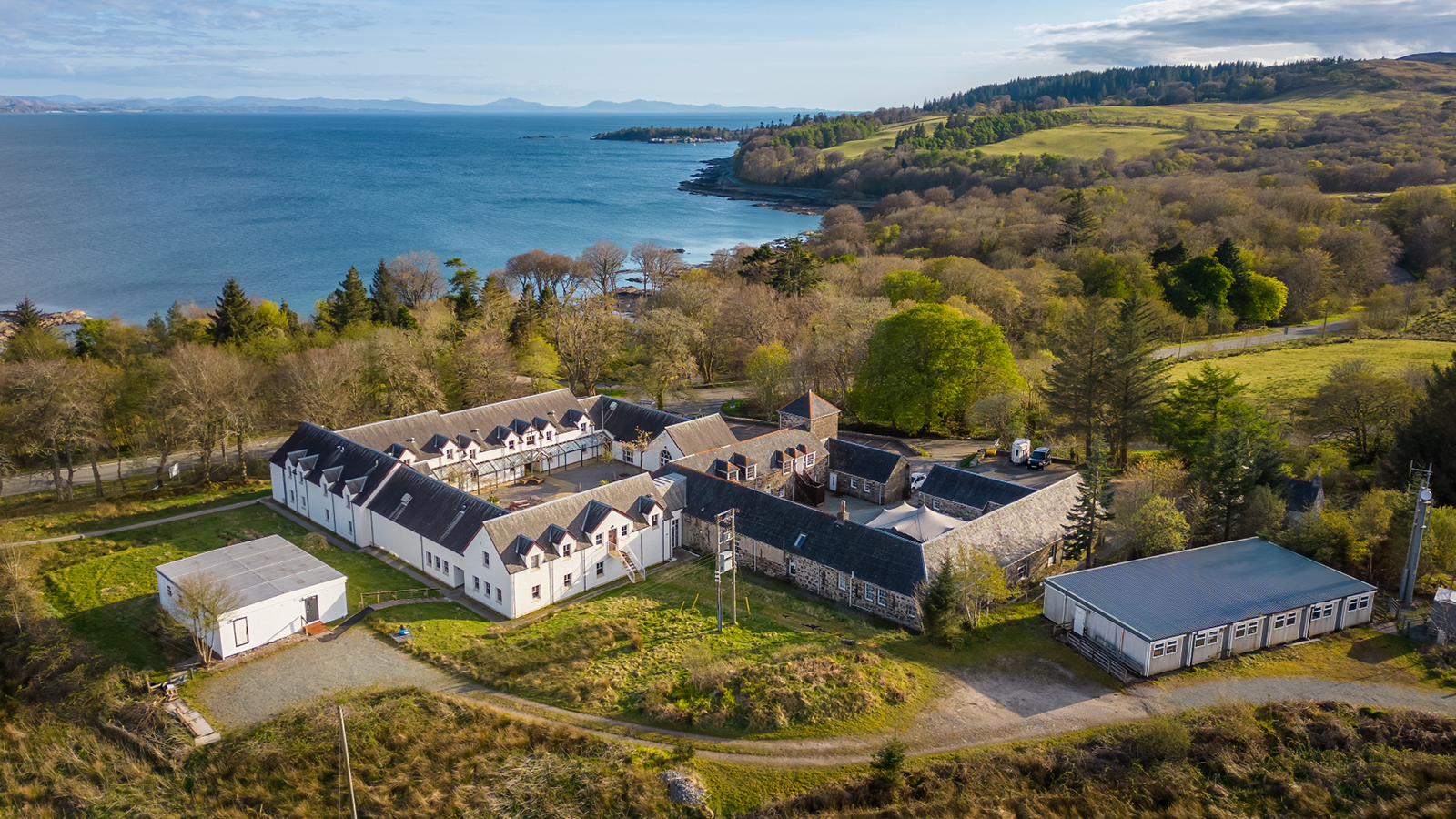
Photo: Sabhal Mòr Ostaig UHI
A new report published today by the Scottish Funding Council marks another step forward in the development of a plan to steer investment in Scotland’s college campuses. Designed for the future, the College Infrastructure Investment Plan will anticipate trends in digital learning and net zero as well as the use of built assets.
Today’s progress report appears at the same time as new guidance for colleges selling land or buildings bought with public money. Ministers have approved changes that will see colleges able to keep all the proceeds from sales under £1 million and 70% of proceeds from sales over £1 million.
According to the progress report, a vital milestone towards the national investment plan has been achieved by building a pioneering new database of the complete Scottish college estate. The groundwork has also been laid for new approaches to the curriculum to be fed into the emerging infrastructure investment plan.
Francesca Osowska, Chief Executive of the Scottish Funding Council, said:
“Our ambition is for college campuses that are high quality, smart and sustainable places to learn, and that support the best outcomes for people, society and Scotland’s future economy.
“Today’s report makes clear the progress that has been made towards having strong and accurate evidence for the investment decisions that will help us achieve that ambition.
“The changes approved by ministers and the new guidelines for the selling of land and buildings also provide a real boost for our collective long-term approach to infrastructure investment.”
The next steps will see the Scottish Funding Council working with colleges and partners such as the Scottish Futures Trust, the Environmental Association of Colleges and Jisc, the tertiary education technology and data experts, to further advance the investment plan.
The College Infrastructure Investment Plan is due for publication in Autumn 2026.
The College Infrastructure Investment Plan: Progress Report and Guidance for the Disposal of Publicly Funded Land and Buildings and the Retention of Proceeds by Colleges are now available on the SFC website.

Photos: Robert Gordon University, University of Dundee, Dundee & Angus College, UHI Moray.
New figures from the Scottish Funding Council (SFC) show that 16.7% of Scottish-domiciled full-time first degree entrants to university were from the 20% most deprived areas in 2023-24, up from 16.3% in 2022-23.
The findings come from the ninth SFC Report on Widening Access, providing updated statistics relating to equality and diversity of the student population across Scotland’s Higher Education Institutions (HEIs) and colleges for 2023-24.
The report also shows that 2,030 people from a care experienced background began an undergraduate higher education course at a Scottish college or university in 2023-24. This number represented 2.4% of entrants to all undergraduate HE courses at Scotland’s colleges and universities in 2023-24, and is up from 2.1% in 2022-23. Both the numbers of care experienced students and the percentage of student intakes have increased every year since 2013-14.
The report also makes clear that, while students form Scotland’s most deprived communities are now more equally represented in entry numbers to higher education courses, this is not equally the case for different institutions and for different types of study.
Commenting on the statistics, Scottish Funding Council Chief Executive, Francesca Osowska, said:
“It is great to see a continuation of more young people from a care experienced background go to college and university and is an important part of working towards fair access.
“It is also encouraging to see in today’s report an increase in the number students going to university from the most deprived areas in Scotland. This is incredibly important in helping to create a more equal society, by widening access to tertiary education for all and ensuring that economic development benefits all parts of Scotland.”

Photo: University of Glasgow
The most recent data published by UCAS, the Universities and Colleges Admissions Service, show a steady increase in applications to Scottish universities across a range of demographics, including a record high of 18-year-old applicants over the last decade and a record high of SIMD20 applicants.
The total number of applicants has increased by 2% from the previous year, reaching 130,030, an increase of 2,510 individuals year-on-year, while the number of applicants from Scottish domiciles has risen by 1% from last year and is up by 3% since 2023. This equates to an additional 570 applicants compared to last year and an increase of 1,590 since 2023.
Particularly significant is the increase in applications from Scots aged 18 and under, which has grown by 5% year-on-year to 21,810. This marks an influx of 1,000 more young Scots aspiring to higher education.
However, the data also indicate a slight decline in demand from ‘mature’ Scots (aged 21 and over), which has decreased by 2% compared to the previous year.
International interest in Scottish higher education continues to rise, with a 4% increase in applications, adding 1,750 new applicants. This brings international applicant numbers to their highest level in the past decade.
While demand for nursing programmes remains steady, there has been an 11% year-on-year decrease in applications for midwifery courses. Similarly, applications for teacher training have dropped by 9% compared to the previous year.
Encouragingly, the number of applicants from SIMD20 areas, representing the most deprived regions in Scotland, has reached a record high. There are 210 more applicants from these regions compared to last year, making up 17.6% of all Scots applying to UK providers. This is a 0.3 percentage point increase year-on-year, the highest proportion seen in recent years.
Commenting on the statistics, Scottish Funding Council Chief Executive, Francesca Osowska, said:
“The latest statistics from UCAS underline the continuing appeal of Scottish universities, with a steady increase in applications across a range of demographics, including school leavers and learners from our most disadvantaged areas. They also demonstrate that Scotland continues to be an attractive destination for overseas students.
“In a highly competitive market, it is hugely encouraging to see the sector’s resilience and ongoing commitment to diversity and inclusion reflected in today’s report.”
The June deadline marks the end of the ‘Main Scheme’ application window whereby applicants can make up to five applications to full-time undergraduate courses at Higher Education Institutions (HEIs); after this point all new applications are automatically entered into Clearing.

Photo: Edinburgh Napier University
The finalists for WorldSkills UK’s national competition programme have been announced today. Amongst the hopefuls competing for the prestigious awards in November will be 32 students from Scotland.
This year’s finalists represent six Scottish colleges and Glasgow Caledonian University as well as a Scottish charitable training trust. One Scottish finalist currently studies at the University of Middlesex. Seventeen of the finalists come from New College Lanarkshire; the College came top of last year’s medals table.
WorldSkills UK’s competitions showcase excellence in over 40 skills and help learners and apprentices develop world-class aptitudes and abilities.
For the first time the finals will be held in venues across South Wales, with the medallists announced at ICC Wales Newport on Friday 28 November.
Francesca Osowska, Chief Executive of the Scottish Funding Council, said:
“The WorldSkills UK finals are an incredible opportunity for learners and employers to come together and recognise and promote the value of a wide range of skills.
“Reaching this stage is a remarkable achievement that reflects the commitment, talent, and hard work of all this year’s finalists.”
Ben Blackledge, CEO WorldSkills UK, said:
“Our competitions test learners’ skills against global industry standards, providing a powerful platform to showcase their talents. Over two intensive days of competition they will gain valuable skills and confidence which will turbo charge their careers and make the UK economy more competitive.
“With employers all over the UK crying out for high-quality skills this is a fantastic opportunity for hundreds of learners to show they are ready for work. I can’t wait to see the finalists in action.”
For more information on the 2025 finals, see the WorldSkills UK website
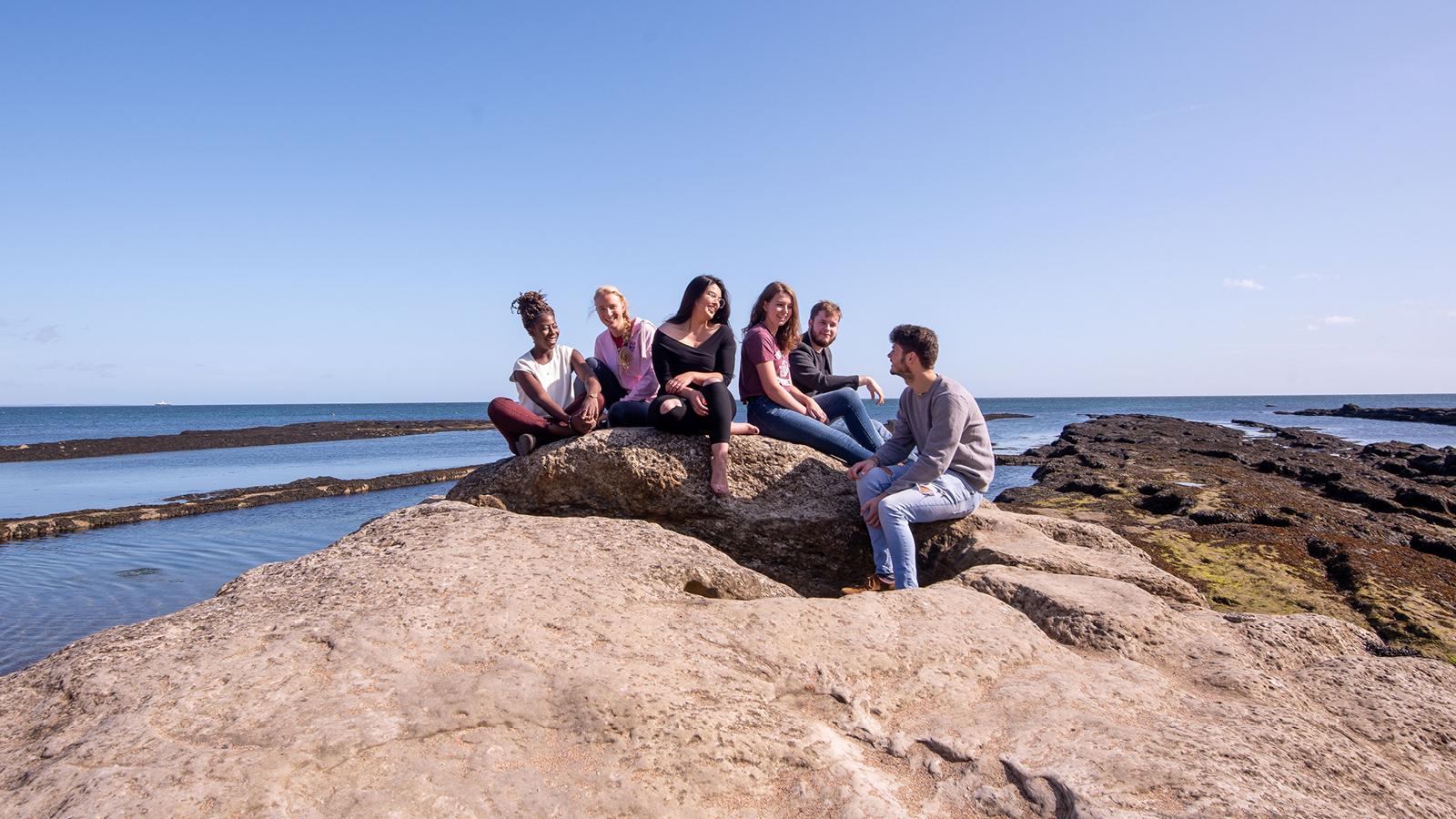
Photo: University of St. Andrews
The results of the UK-wide National Student Survey, one of the largest of its kind in the world, were published today. The survey captures final year undergraduate’s opinions about their experiences at university, including how their course was organised, taught and assessed.
Students in Scotland are also asked to condense their judgement in a question that asks about their overall satisfaction. Since the COVID-19 pandemic, the trend has been for less positive responses in this part of the survey. Overall satisfaction in Scotland fell from 85% in 2020 to 77.1% in 2023. However, this year’s results see the trend continuing to be reversed with a 2.6% increase on the 2024 results bringing overall student satisfaction for 2025 to 80.7%.
Over 350,000 students responded to the 2025 National Student Survey and around 25,000 of these responses came from students at a Scottish university. Since its introduction in 2005, questions asked in the national survey have changed. The current set of questions was introduced in 2023.
Francesca Osowska, Chief Executive of the Scottish Funding Council, said:
“The experience of students at university during and immediately after the pandemic was inevitably affected despite the best efforts of Scottish universities to alleviate the situation.
“It’s great to see the continuation of an upward trend in overall satisfaction in the sector. It shows the positive impact of focusing on student needs and the quality of learning and teaching.”
Further information about the National Student Survey 2025 is available from the Office for Students website.